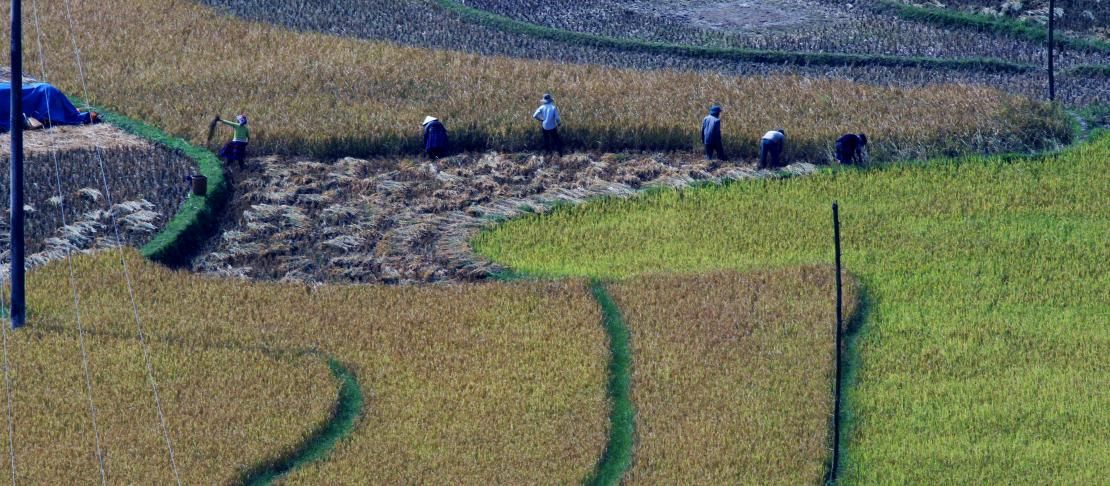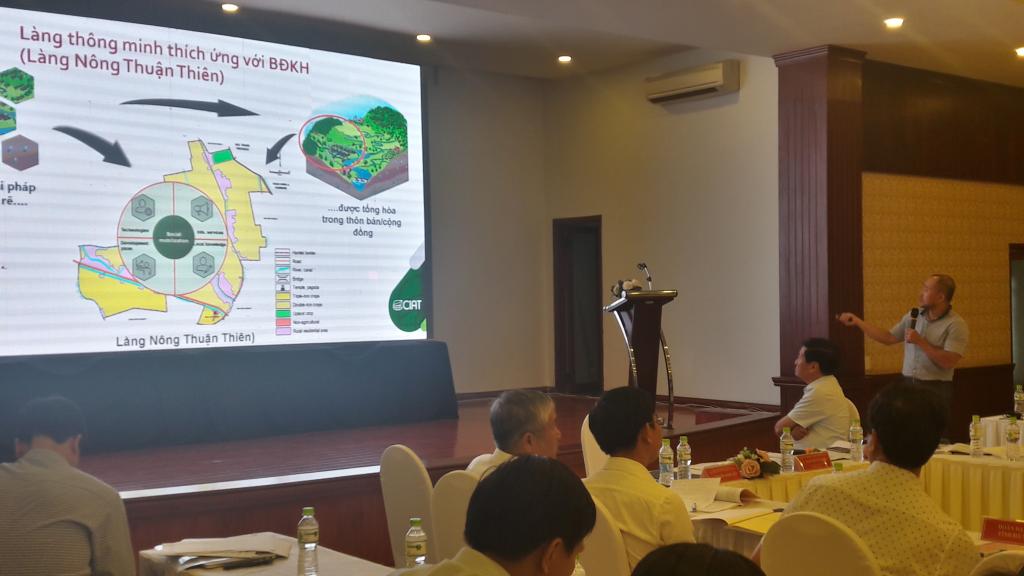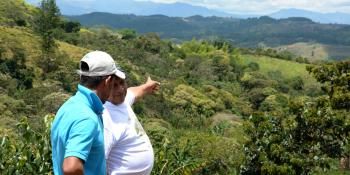Climate resilience to be integrated into Vietnam’s national development program

In the next few years, the Vietnamese government will build the country’s knowledge and capacity on climate resilience while still pursuing infrastructure development.
Nong Thon Moi (NTM) is a national targeted program under New Rural Development, one of Vietnam’s national development programs. Recognizing that climate resilience will make the NTM program sustainable, Vietnam is drawing on the experience of Ma Climate-Smart Village (CSV), a “hub” where climate-smart agriculture (CSA) technologies and practices are being developed, tested, and upscaled. Based on the Ma CSV experience, the country will develop Vietnam-specific criteria for climate-resilient agriculture, which will be integrated into the new version of NTM that will cover the period 2021–2025.
“A fated encounter”
The Vietnamese government tasked the Center for Agricultural Policy of the Institute for Policy and Strategy of Agriculture and Rural Development (IPSARD) to gather evidence on climate-resilient agriculture from international and national organizations working in Vietnam. This is how they were led to Ma CSV, where they were impressed with the CSV initiative and the implementation of CSA by the CGIAR Research Program on Climate Change, Agriculture and Food Security (CCAFS).
After a series of discussions between IPSARD and the International Center for Tropical Agriculture (CIAT), a meeting with the national NTM coordination office was organized on 10 July 2018. During this meeting NTM implementers saw the Ma CSV story as an exemplar of climate-resilient agriculture and a resource for integrating CSA into their program.
 Dr. Bui Le Vinh presenting the CSV work in Ma Village at the Nong Thon Moi workshop in Da Nang Photo: CIAT Asia
Dr. Bui Le Vinh presenting the CSV work in Ma Village at the Nong Thon Moi workshop in Da Nang Photo: CIAT Asia
A few weeks later, Dr. Bui Le Vinh was invited to present CCAFS' work in northern Vietnam at the regional workshop, ‘Enhanced capacity for adaptation and resilience to climate change impacts in implementation of Nong Thon Moi,’ held in Da Nang City, Vietnam on 24 July 2018. Dr. Nguyen Tuan Anh, head of the Science and Technology department of NTM, expressed his admiration of CCAFS' work, noting that it exhibited “the right bottom-up approach in assessing impacts of climate risks based on thorough situation analysis and needs assessment for adaptation and mitigation of local communities.”
“This approach will help NTM best assess impacts and needs for enhanced adaptive capacity and resilience of rural livelihoods and use national budget most efficiently and effectively,” Dr. Anh concluded.
The CCAFS team was invited to present their work in another regional workshop in Dien Bien Province this past July, and in the national NTM workshop in Vinh Yen City this past August. At the national workshop, they presented a CSA-CSV exhibition to Deputy Prime Minister Vuong Dinh Hue, the lead of the NTM program. The next NTM regional workshop will be held in Yen Bai Province in the second week of October 2018, and a field visit to Ma CSV for over 100 NTM participants will be organized.
Way forward
Dr. Bui Le Vinh will organize a joint international workshop with the National University of Ireland Galway at the Vietnam National University of Agriculture on 16 October 2018. In this workshop, NTM and CIAT will sign an agreement to mainstream CCAFS' work into the climate resilience component of NTM.
Dr. Vinh Le Bui is a researcher at the International Center for Tropical Agriculture Asia. He is also CCAFS SEA’s coordinator for the Ma CSV in Vietnam.



